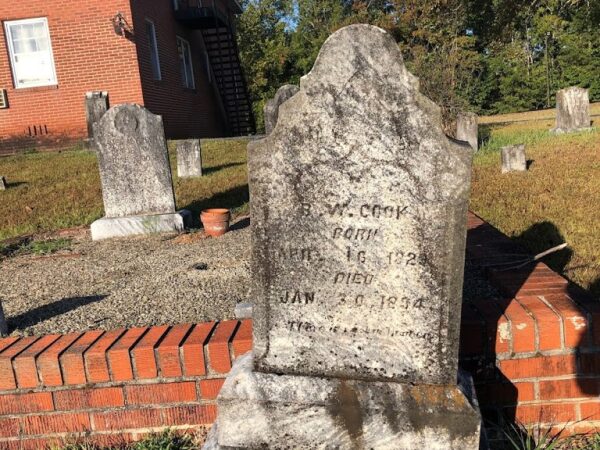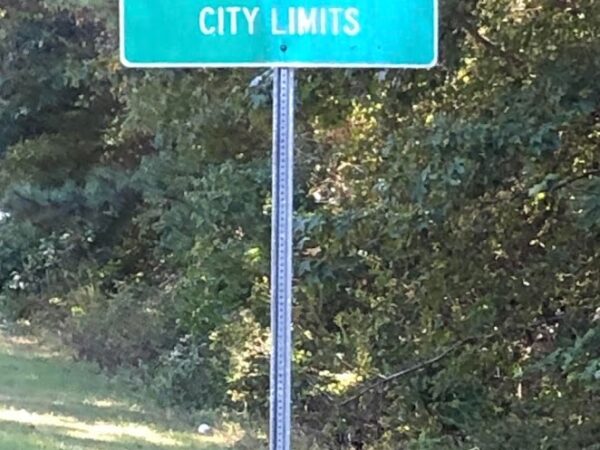
Public Domain
As a child, I loved the movie The Wizard of Oz. While the movie fueled our young, active imaginations, it also generated a whole new set of fears.

In parts of California, springtime often brings large fields of beautiful orange poppies. I remember being horrified when my mom wanted to take pictures of us out in the poppy fields. Did she remember what happened to Dorothy while in a field of poppies?
Additionally, the movie also taught me to fear tornadoes, witches, and of course the thing that all children of that era feared…..flying monkeys!!
While my Georgia kin had little to fear from poppies, witches or flying monkeys, they did, however, live with the very real fear of tornadoes, or cyclones as they were sometimes called.
The University of Oklahoma maintains a great online digital book collection that includes the book, “Tornado” written by John Park Finley. Finley was an American meteorologist who was among the first to study tornadoes in depth. Finley’s book, published in 1887, educated people about the dangers of tornadoes as well as how people could anticipate and protect themselves during a tornado.1

Describing the eerie cloud formations that often precede tornadoes, Finley stated that “the dark clouds at times present a deep, greenish hue, which forebodes the greatest evil and leaves one to imagine quite freely of dire possibilities.” 3

Finley also indicated, “Another and invariable sign of the tornado’s approach is a heavy, roaring noise, which augments in intensity as the tornado-cloud advances. This roaring is compared to the passage of a heavily loaded freight train moving over a bridge or through a deep pass or tunnel.” 4 I enjoyed reading through this book to see what was believed and known about tornadoes at that time, as I had ancestors that lived in many of the states considered part of “tornado alley.”
The Friday, June 10, 1887 edition of the Carroll Free Press, which was published the same year as Finley’s book, carried an article about which citizens of the Carroll County community had received the most damage during a tornado and hail storm that hit there. 6 The article also mentioned a “Citizens’ Meeting” held to discuss measures to provide aid to the victims. A resolution was adopted to collect funds and distribute them to those who had received the most damage. Included in the list of citizens needing relief were P.H. Chandler, B.W. Cook and G. P. Chandler, all people in my family tree.

Atlanta area late 1800s or early 1900s
B.W. Cook was Burton W. Cook, who married Mary Ganus, daughter of my third great grandparents, James and Elizabeth Ganus and sister to John Monroe Ganus. G.P. Chandler was George P. Chandler, son of Philo H. Chandler and Nicie Jane Reid (the same P.H. Chandler named in the article). George P. Chandler married Mary Cook, daughter of Burton W. Cook and Mary Ganus, thereby making her a grand-daughter to James and Elizabeth Ganus.
The article also indicated who had donated money, how much they donated and who received the financial aid and how much they received. A committee had distributed the donated funds to those that were in the most need and had not already received help from others of the community.
As I scanned the list of citizens who had received financial help, I found that B.W. Cook, G.P. Chandler and P. H. Chandler were not included. Did that indicate then that they were among those who had received help from others? Living in Carroll county at that time were Mary’s siblings, Martha Ganus Brock, Rebecca Ganus Lee and Addison Ganus and their spouses and children. Living in neighboring Haralson County were Mary’s other siblings, John M. Ganus, as well as Margaret Ganus Blackmon and James W. Ganus and their spouses and children. True to typical southern culture, the siblings had remained in close proximity to each other.
Did the Ganus siblings help repair damage sustained to Mary and Burton’s home? Did they help fix barns and outbuildings, locate scattered livestock, and replant crops if needed? Did they bring in meals and share of what they had? I would like to think that Burton and Mary did not need aid from the community because they received help from their family. I would like to think they were living close to one another not only for the social advantage but also so that they could provide help and support through good times and bad.
Given the history of tornadoes in the south, I am sure that this was not the only time that the Ganus family was impacted by the wrath of a storm. I am confident that each member of that family faced many storms during their lifetime, both physical and emotional in nature and hopefully each time they found their greatest source of support and strength in their family.
1. Finley, John P., Tornadoes. New York: The Insurance Monitor, 1887. Digital Images. History of Science Collections, The University of Oklahoma Libraries. http://ouhos.org/2010/06/19/digitized-books/
2. Ibid. at p. 40
3. Ibid at p. 29
4. Ibid at p. 30
5. Ibid at p. 44
6. USGenWeb Archives, Carroll County Georgia, Newspapers, Carroll Free Press, Issue of Friday, June 10, 1887. File was contributed by Judy Campbell.
http://files.usgwarchives.net/ga/carroll/newspapers/ju87.txt
7. Photograph of home of Oct(via) Kite blown away by tornado, Fulton County, Georgia, ca. 1897-1903, Georgia Division of Archives and History, Vanishing Georgia. http://dlg.galileo.usg.edu/vanga/query:gk%3A+%28octa+kite+tornado%29
Copyright © Michelle G. Taggart 2013



Thank you so much for your informative article. I knew that my ancestors, James and Margaret (Ganus) Blackmon, left Georgia probably between 1884 and 1887, because, among other things, their son, Will, married in Blount County, Alabama, in late 1888. I always wondered what motivated them to move from Georgia to Alabama. I can imagine a number of circumstances, including economic and emotional, that could result from such a tornado outbreak.
Michelle – Living in Oklahoma, I've had some experience with tornadoes. It was interesting to see the resources you drew on to put together this story of your family. Great post! – Pam
Oh Pam….I bet you have! We lived in Dallas for a time and I know the weather in the TX/OK area was very scary. Actually after I wrote this I realized that John M. Ganus that I mentioned ended up in the Okmulgee area and so he still had tornadoes to contend with. Thanks for your comments.
Thanks Karen. Oh how I wish our ancestors had kept diaries so that we knew more. We can take the bits and pieces we find about them and try to fill in in-between, but I wish we had some things in their own words.
That certainly does sound like Southern culture to me — "the siblings had remained in close proximity to each other." That perfect describes one of my lines of cousins in South Carolina. And you are right — they live close by partly to help each other out. I think there is a strong possibility that your family members helped each other.
I'm so glad to know about that appealing digital book "Tornadoes," by John Finley. We don't often have tornadoes in CT, but the storms have gotten more fierce in recent years, and I've always worried about tornadoes since I saw The Wizard of Oz. I remember people telling me when I was a child, "If you hear a sound like a train approaching, run for the basement." Hm, just hope our basement is deep enough. : ))
Another great post, Michelle. I had to stop and smile when I read the excerpt about the sound of the freight train. I know it's common, but my Granny used to always talk about it when tornado weather would come upon us. We had to listen and remember that if we hear a train where there ought not be it was time to get home or safe.
"Run this way…or this way." Funny how that sketch was the first thing to catch my eyes. I've never lived in tornado country, but I've visited a time or two when tornado warnings have come up. Those clouds do have a telltale look about them!
Michelle,
I want to let you know that your blog post is listed in today's Fab Finds post at http://janasgenealogyandfamilyhistory.blogspot.com/2013/04/follow-friday-fab-finds-for-april-19.html
Have a great weekend!
Thank you so much Jana!
That sketch did make me chuckle too Jacqi. When I was young we moved from California to Texas and I remember breathing a sign of relief because we wouldn't be in earthquake country anymore—-only to realize we now had tornadoes to worry about!
Thanks Stephanie. It's interesting to know that while the way we deal with tornadoes has changed since the 1800's, there are some things, such as the description of the sound being like that of a train that was and is universally recognized.. Your Granny's comment made me smile—I like that—if you hear a train where it ought not to be. . .!